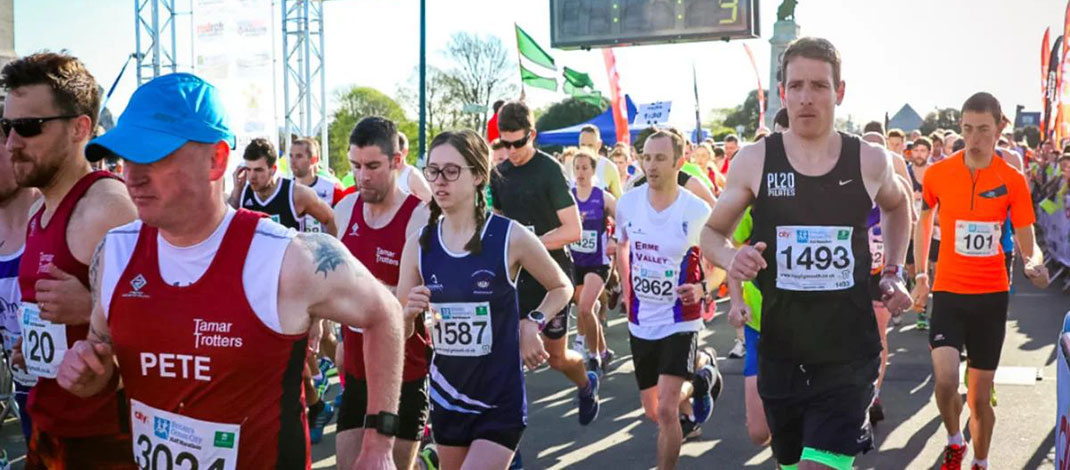Preparing Your Mind and Body
Setting the Foundation
The Plymouth Half Marathon is an exciting event that brings together runners of all levels for a challenging and rewarding experience. If you’re gearing up for your first half marathon, proper training is essential to ensure you reach the finish line feeling strong and accomplished. Here are some training tips to help you prepare your mind and body for the race ahead.
1. Establish a Training Plan: Begin by creating a training schedule that suits your current fitness level and allows for gradual progression. Ideally, your plan should span around 12 weeks leading up to the race. Start with shorter runs and gradually increase your mileage each week to build endurance. A structured plan will help you stay consistent and avoid overtraining.
2. Consult with a Professional: If you’re new to distance running, consider consulting with a running coach or a fitness professional who can help tailor a training plan to your specific needs. They can guide you on proper form, injury prevention, and provide valuable advice to maximize your training efforts. Their expertise can be invaluable in helping you reach your full potential.
Mental Preparation
Completing a half marathon requires mental resilience as much as physical endurance. Here are some tips to help you stay motivated and mentally prepared throughout your training:
1. Set Realistic Goals: While it’s great to aim high, setting realistic goals is crucial for your first half marathon. Break down your goal into smaller milestones and focus on achieving them one at a time. This approach will give you a sense of accomplishment and boost your confidence as you progress. Remember, the journey is as important as the destination.
2. Visualize Success: Spend some time visualizing yourself crossing the finish line strong and feeling proud of your achievement. Visualizing success can help you stay motivated during challenging training runs and remind you why you’re putting in the effort. Imagine the sense of accomplishment and joy you’ll experience when you achieve your goal. Let this visualization fuel your determination and help you push through any obstacles.
3. Positive Self-Talk: Pay attention to your internal dialogue and replace any negative or self-doubting thoughts with positive affirmations. Remind yourself of your strength, determination, and progress. Encourage yourself during tough training sessions, and believe in your ability to overcome challenges. Positive self-talk can have a significant impact on your mindset and performance.
4. Find a Supportive Community: Surround yourself with like-minded individuals who share your passion for running. Join a local running group or connect with fellow runners online. Having a supportive community can provide motivation, advice, and a sense of camaraderie. Share your goals and progress with them, and draw inspiration from their experiences. Their support can make the journey more enjoyable and fulfilling.
By laying a solid foundation through a well-structured training plan, consulting with professionals, and focusing on mental preparation, you’ll be on the right track to tackle your first Plymouth Half Marathon. Stay tuned for Part 2, where we’ll explore strategies to build strength and endurance, ensuring you’re fully prepared for the challenge that awaits you on race day.
Building Strength and Endurance

Strength Training
Incorporating strength training into your routine can improve your running performance and reduce the risk of injuries. Here are two important areas to focus on:
1. Core Strength: A strong core stabilizes your body, improves your running form, and helps prevent injuries. Include exercises like planks, Russian twists, and leg raises in your training plan to strengthen your core muscles. A strong core will also contribute to better posture, enabling you to maintain efficient running mechanics throughout the race.
2. Lower Body Strength: Strong legs are essential for running long distances. Incorporate exercises such as squats, lunges, and calf raises to strengthen your leg muscles. Don’t forget to work on both the front and back of your legs for balanced strength. Additionally, include exercises that target your glutes, such as bridges or hip thrusts, as they play a crucial role in generating power and stability while running.
Endurance Building
To complete a half marathon, you need to gradually build your endurance over time. Here are two strategies to help you improve your endurance:
1. Long Runs: Schedule a long run once a week to build your stamina. Start with a distance that is comfortable for you and increase it gradually each week. Aim to complete at least one or two runs that are longer than the half marathon distance to build mental and physical confidence. These long runs simulate race conditions and allow you to practice pacing, hydration, and fueling strategies.
2. Tempo Runs: Tempo runs include performing at a comfortably hard speed for a sustained period. These runs help improve your lactate threshold, enabling you to run faster without accumulating fatigue. Include one or two tempo runs per week in your training plan to enhance your overall endurance. Start with shorter tempo intervals and gradually increase the duration as you progress.
3. Interval Training: Intervals are short, intense bursts of running followed by a recovery period. Incorporating interval training into your routine can help improve your speed, cardiovascular fitness, and endurance. For example, try alternating between one minute of fast running and one minute of recovery jogging. As you get stronger, increase the intensity or duration of your intervals.
4. Cross-Training: Don’t forget to include cross-training activities in your training plan to complement your running. Activities like cycling, swimming, or strength-based workouts can help improve your overall fitness, prevent overuse injuries, and provide a refreshing break from running. Be sure to listen to your body and choose activities that complement your running goals.
Remember to prioritize recovery by incorporating rest days into your training schedule. Rest allows your body to repair and adapt to the demands of training, reducing the risk of injury and improving performance. Additionally, pay attention to proper nutrition, hydration, and sleep to support your training efforts.
In conclusion, building strength and endurance are crucial aspects of preparing for your first Plymouth Half Marathon. Incorporate strength training exercises to improve your core and lower body strength, and include long runs, tempo runs, intervals, and cross-training activities to enhance your endurance. With a well-rounded training plan and a focus on both physical and mental preparation, you’ll be well-equipped to tackle the challenge and achieve your goals on race day. Stay committed, stay consistent, and enjoy the journey as you become a stronger and more resilient runner. Good luck!




